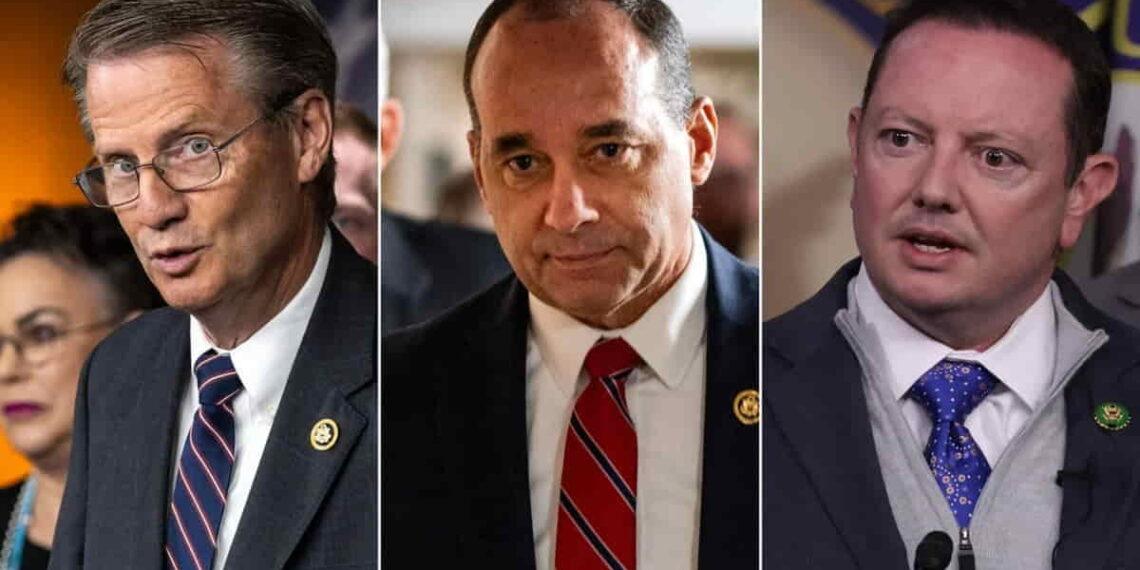24 Hours of Chaos: Trump and Musk Deepen Schism with Johnson, Pushing Government Toward Shutdown
In a dramatic 24-hour period, House Speaker Mike Johnson’s government funding plan unraveled, sending shockwaves through the Republican Party and throwing the government into danger of a shutdown. The chaos was ignited by an unlikely combination of political forces, including President-elect Donald Trump and tech mogul Elon Musk, who undermined Johnson’s short-term funding deal. Their actions left the House GOP scrambling, raising serious concerns about the party’s future direction once Trump takes office.
Trump has long been a supporter of Johnson, hosting him at various events and offering private backing despite growing conservative discontent with the Speaker’s actions. But everything changed when Musk, with Trump’s tacit approval, launched a barrage of social media posts on Wednesday, sharply criticizing Johnson’s funding deal and calling it “criminal.”
Trump swiftly followed up, threatening to oppose any Republican who voted for the measure in 2026 primaries. Additionally, he unexpectedly demanded that the debt ceiling be addressed before he assumes office, a move that complicated negotiations and pushed the government closer to a shutdown deadline. These last-minute demands caught many Republicans off guard, especially given Johnson and Trump’s prior communication.
The 24-Hour Whiplash
Trump’s sudden shift in position left GOP lawmakers in confusion. For weeks, Johnson had been inching toward an agreement on a short-term funding measure. In fact, just days earlier, Trump and Johnson were seen talking at the Army-Navy game, where Trump privately communicated his preference for a long-term spending bill and his desire for the debt ceiling to be addressed in that context.
Despite this, Trump’s preference for a clean slate upon entering office drove him to demand a more substantial funding package. The result was a chaotic 24-hour period where Trump and Musk’s social media influence seemed to pull the rug out from under Johnson, leading to the collapse of the bill. The bill would have funded the government for three months, lifted the debt ceiling until 2027, and included $110 billion for disaster relief, but it ultimately failed after 38 Republicans voted against it.
By Thursday, Trump was back supporting Johnson as he attempted to push an alternative plan. The confusion reflected Johnson’s vulnerabilities as a leader and Musk’s growing sway over Trump’s decisions. The failure of the bill underscored the fractured nature of Republican leadership, leaving the GOP unsure about how to navigate the remainder of 2023 and into 2024.
Trump and Musk’s Influence
As the bill’s details emerged on Wednesday, Trump began polling his allies and advisors on the merits of a short-term funding deal versus a longer-term solution. He and Musk quickly agreed that the funding deal was too generous to Democrats and unnecessarily costly. Musk’s vocal opposition on social media, even before Trump’s public comments, signaled his growing influence in the political landscape.
Behind the scenes, Vice President-elect JD Vance was handling most of the discussions on Capitol Hill, dealing with the nitty-gritty of negotiations while Trump enjoyed dinner with Musk and Amazon’s Jeff Bezos at Mar-a-Lago. Despite his private interventions, Trump’s public stance created confusion and fueled opposition within the GOP.
Debt Ceiling Debate Adds Uncertainty
Compounding the situation, Trump introduced a new demand: that the debt ceiling be dealt with before he takes office. This demand created further complications, especially since the conventional wisdom had been that the debt ceiling would be addressed later, potentially in March 2024. Trump’s sudden focus on the issue added a new layer of uncertainty, with some of his allies questioning why Republicans would allow a potential bargaining chip to remain in place for the Democrats to use against them in the coming year.
Wednesday’s Collapse and Johnson’s Troubles
Despite initial optimism about passing the funding bill, the situation quickly deteriorated by Wednesday afternoon. A whip count revealed that Johnson lacked the necessary Republican votes to pass the deal, even with Democratic support. Rumors swirled that a pay raise for lawmakers was included, further alienating members. Musk’s social media barrage only fueled the collapse, with disgruntled phone calls flooding Republican offices.
By Thursday morning, frustration among Republicans reached a boiling point. Some conservatives, like Rep. Marjorie Taylor Greene, publicly reversed their support for Johnson and speculated about Musk potentially taking over as Speaker. This shift signaled a deepening divide within the party and a growing sense that Johnson’s leadership was in peril.
Looking Ahead
As the crisis unfolded, many Republicans felt that Johnson’s team should have voted when they had the votes earlier in the day. Instead, the party found itself in disarray. Johnson, in a moment of reflection after the bill’s failure, vowed to regroup and find another solution. The question now is whether the GOP, already divided and dealing with a narrow majority, can navigate the remainder of the year without further disruption.
The episode exposed the fragile nature of GOP leadership, with Trump’s influence and Musk’s social media power looming large over the party’s next steps. As the government faces the looming threat of a shutdown, the chaos from this 24-hour period only highlights the deeper challenges facing the Republican Party in the coming months.
This article was rewritten by JournosNews.com based on verified reporting from trusted sources. The content has been independently reviewed, fact-checked, and edited for accuracy, neutrality, tone, and global readability in accordance with Google News and AdSense standards.
All opinions, quotes, or statements from contributors, experts, or sourced organizations do not necessarily reflect the views of JournosNews.com. JournosNews.com maintains full editorial independence from any external funders, sponsors, or organizations.
Stay informed with JournosNews.com — your trusted source for verified global reporting and in-depth analysis. Follow us on Google News, BlueSky, and X for real-time updates.














